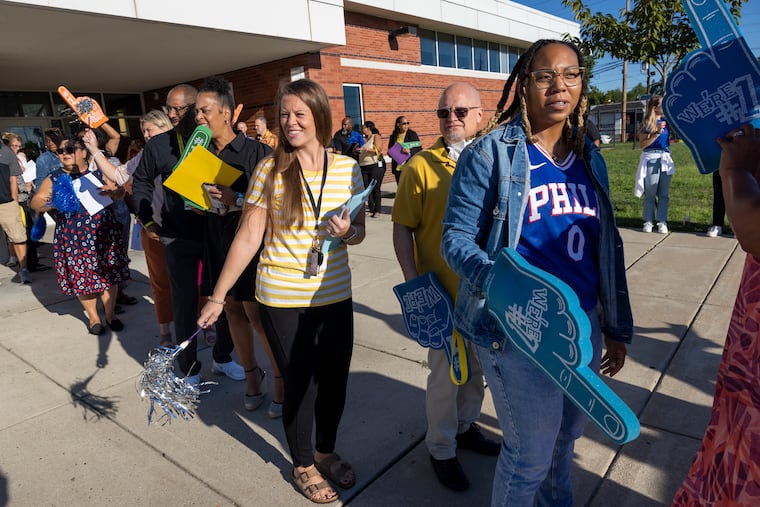To make up for learning loss, N.J. bill would allow for extended school day — or year — in struggling districts
Priority would be given to urban districts including Camden and other economically disadvantaged school systems seeking to boost test scores and graduation rates.

Students in some New Jersey public school districts could spend more time in the classroom under a bill to help make up for learning losses they experienced from COVID closures.
Under the bill sponsored by state Sen. Shirley K. Turner (D., Mercer), 20 N.J. districts could join a three-year pilot program to provide more instructional time. Those districts could opt to increase the length of the school day or school year, likely beginning with the 2024-2025 academic year, she said.
“We need to do more than what we have contemplated doing as a result of the pandemic,” Turner said in an interview. “This is more than a wake-up call.”
New Jersey and Pennsylvania students saw declines in math and reading scores at slightly steeper rates than the national average , according to findings released last month from the National Assessment of Educational Progress (NAEP) exam. This year’s test, administered to fourth- and eighth-grade students, was taken as many were returning to in-person learning after disruptions and closures due to the pandemic.
» READ MORE: NAEP testing scores 2022: Pa. and N.J. saw declines
Turner said priority would be given to urban districts, including Camden and other economically disadvantaged school systems seeking to boost test scores and graduation rates. Participation would be voluntary and districts could seek additional funding — up to $1 million annually, she said.
Under the bill introduced last month, the state Department of Education would pick five districts in the southern, central and northern regions of the state, along with five additional N.J. districts , Turner said. New Jersey has nearly 600 school districts.
Districts chosen for the pilot program could opt to extend the traditional school day or year for all of their students or for some student groups. New Jersey requires schools to be open for 180 days. Some charter schools have longer days than traditional public schools.
Details about how to extend the school day or year still would have to be worked out, including reaching agreements with unions representing teachers and administrators. Many districts are experiencing shortages that have made it difficult to fill teacher vacancies.
» READ MORE: Philly schools rank near the bottom of 26 big-city districts
Camden Education Association President Keith Benson said he would be open to extended days or years if it would allow students more time to learn beyond standard test subjects. Students in high-needs districts like Camden already are in extended block courses in English and math, he said.
“Our students are without expansive electives that can spur their curiosity and their interests that connect and intersect with their traditional courses,” Benson said in an email. “This has had an enormously negative impact and effect on our students.”
» READ MORE: A N.J. bill is proposing later start times for high schools.
Millville School Superintendent Tony Trognoe supports the bill as a way to boost student achievement. His district has used federal funding to offer summer school for the past two years, essentially adding about 20 days to the school year, he said.
“It is logical that we extend the time for all the things we consider beneficial to kids,” Trognone said Thursday. “All kids are struggling.”
Trognone said extending the school day would ease childcare needs for some parents. However, it would pose a challenge for accommodating extracurricular activities like athletics, he said.
Turner said she would ask the senate Education Committee to hold a hearing on the bill in January. As the lone sponsor, she acknowledged shecould face an uphill battle to add more hours to a school day or change the traditional nine-month school calendar.
“Something has to be done,” said Turner. “We can’t just keep wringing our hands and clucking our tongues. People should be looking to do something that is possibly going to make a difference.”